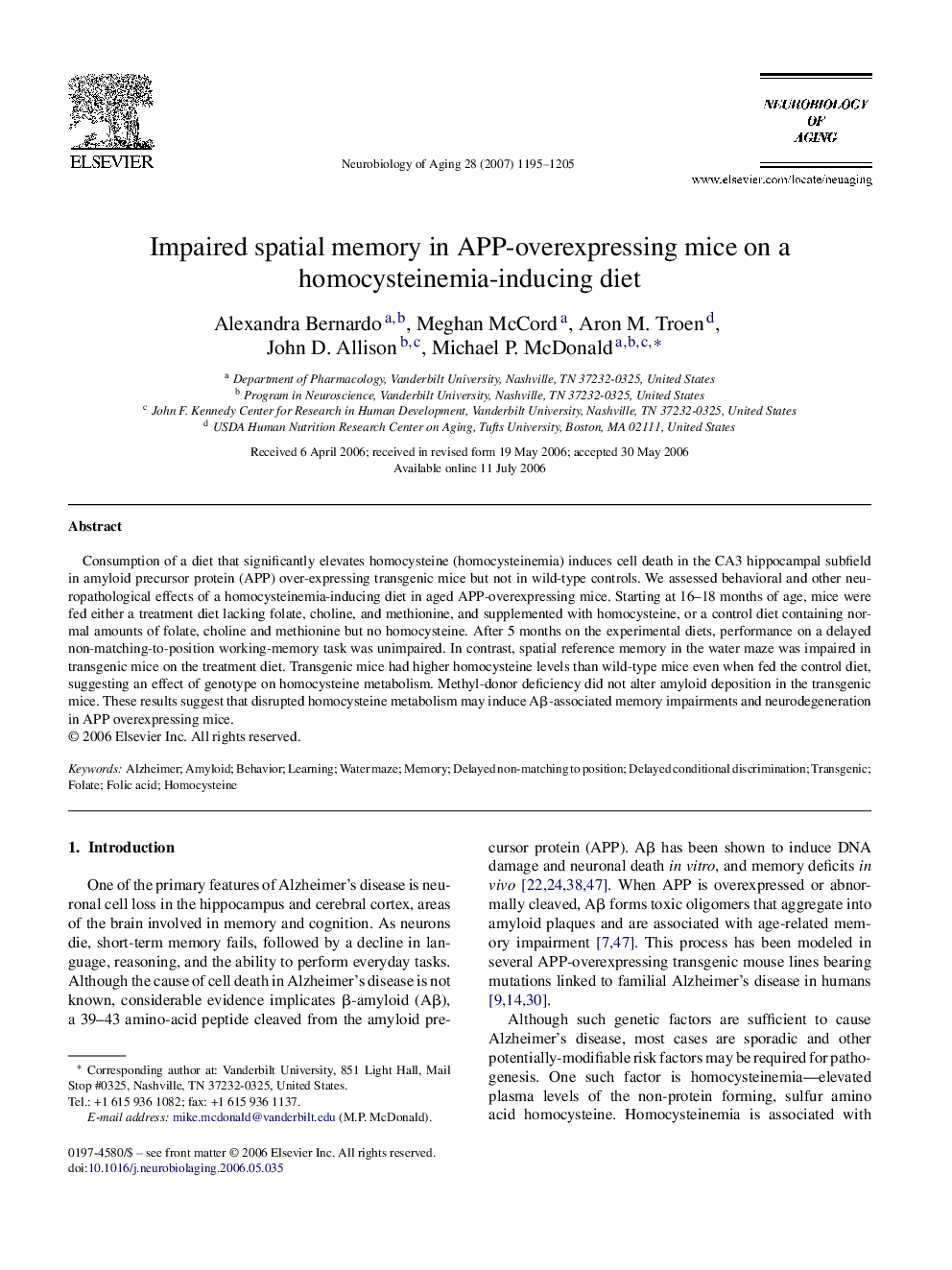| Article ID | Journal | Published Year | Pages | File Type |
|---|---|---|---|---|
| 331221 | Neurobiology of Aging | 2007 | 11 Pages |
Consumption of a diet that significantly elevates homocysteine (homocysteinemia) induces cell death in the CA3 hippocampal subfield in amyloid precursor protein (APP) over-expressing transgenic mice but not in wild-type controls. We assessed behavioral and other neuropathological effects of a homocysteinemia-inducing diet in aged APP-overexpressing mice. Starting at 16–18 months of age, mice were fed either a treatment diet lacking folate, choline, and methionine, and supplemented with homocysteine, or a control diet containing normal amounts of folate, choline and methionine but no homocysteine. After 5 months on the experimental diets, performance on a delayed non-matching-to-position working-memory task was unimpaired. In contrast, spatial reference memory in the water maze was impaired in transgenic mice on the treatment diet. Transgenic mice had higher homocysteine levels than wild-type mice even when fed the control diet, suggesting an effect of genotype on homocysteine metabolism. Methyl-donor deficiency did not alter amyloid deposition in the transgenic mice. These results suggest that disrupted homocysteine metabolism may induce Aβ-associated memory impairments and neurodegeneration in APP overexpressing mice.
